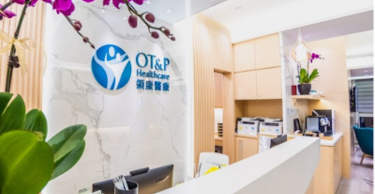Aging is a universal process, but the path to old age is different for everyone, especially between genders. Women face unique challenges due to biological, social, and environmental factors that can influence their longevity and quality of life. This article delves into women's challenges and offers solutions to promote healthy aging and longevity.
Biological Challenges and Health Risks
Women go through various biological phases that have significant impacts on their health. Understanding these can provide insights into the challenges they face:
- Menopause and Hormonal Changes
Menopause marks a significant change in a woman's life, typically occurring in her late 40s to early 50s. During this period, the production of hormones like estrogen and progesterone declines, which can lead to various symptoms like hot flashes, mood swings, and increased risk of osteoporosis and heart disease. - Increased Risk of Osteoporosis
Women are at a higher risk of developing osteoporosis, particularly post-menopause when the decrease in estrogen levels can lead to bone density loss. This condition makes bones fragile and more susceptible to fractures. - Cardiovascular Health
Heart disease is often considered a health issue primarily affecting men, but it is also the leading cause of death among women. Risk factors such as high blood pressure and cholesterol increase with age. - Mental Health Concerns
Women are more likely to experience depression and anxiety. The risk increases with age, mainly due to isolation, loss of loved ones, or chronic health conditions.
Solutions for Healthy Aging in Women
Addressing the challenges of aging in women requires a comprehensive approach that includes lifestyle modifications, healthcare interventions, and community support:
- Nutrition and Physical Activity
A balanced diet rich in calcium, vitamin D, and antioxidants is crucial for bone health and reducing the risk of chronic diseases. Regular physical activity, including weight-bearing and muscle-strengthening exercises, can help maintain bone density, improve metabolism, and enhance mood. - Hormone Replacement Therapy (HRT)
For some women, HRT can be an effective treatment to alleviate menopausal symptoms and prevent chronic conditions associated with hormonal changes. However, HRT is not suitable for everyone and requires a careful evaluation of risks and benefits by a healthcare professional. - Regular Health Screenings
Preventative health screenings are vital for early detection and management of diseases common in older women, such as breast cancer, cervical cancer, osteoporosis, and heart disease. Regular health assessments should include mammograms, bone density tests, and cholesterol checks. - Mental Health Support
Support for mental health is as important as physical health. Counseling, therapy, and participation in social activities can improve mental well-being and reduce feelings of isolation. - Community and Social Engagement
Maintaining strong social connections and engaging in community activities can have a profound effect on mental and physical health. Social interaction helps prevent loneliness and allows for shared experiences and emotional support.
As women age, they encounter specific challenges that require targeted solutions. By understanding these challenges and implementing strategies for healthy aging, women can enhance their longevity and quality of life. Women need to engage with healthcare providers to develop personalized strategies that address their unique health needs. Through a combination of healthy lifestyle choices, preventive care, and social support, aging can be a vibrant and healthy stage of life.
 Central General Practice
Central General Practice
 Repulse Bay
Repulse Bay
 Clearwater Bay
Clearwater Bay
 BodyWorX Clinic
BodyWorX Clinic
 Central Specialist Clinic
Central Specialist Clinic
 MindWorX Clinic
MindWorX Clinic
 Partner Clinics
Partner Clinics
 Family Clinic
Family Clinic
 OT&P Annerley Midwives Clinic
OT&P Annerley Midwives Clinic
 WellWorX Clinic
WellWorX Clinic






-1.png?length=500&name=%5BMKT%5DWebsite%20Blog%20Photo%20(16)-1.png)
